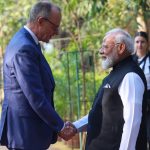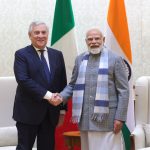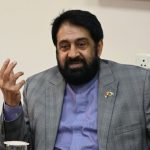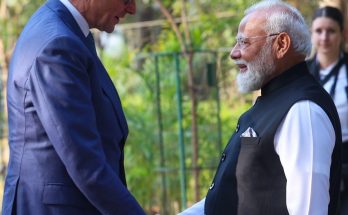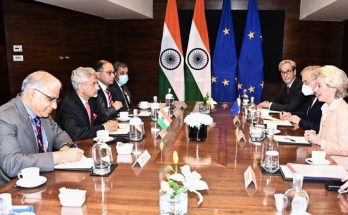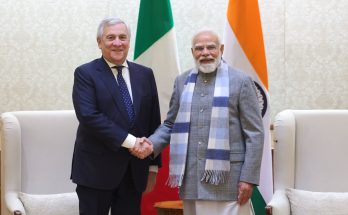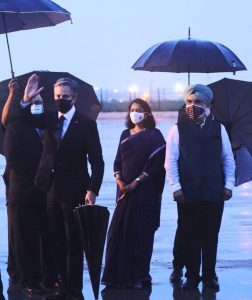
The maiden visit of US Secretary of State Antony Blinken to India is set to deepen strategic and economic partnership between the world’s largest democracies as New Delhi seeks Washington’s support for shaping a broad-based dispensation in Kabul that can prevent the use of the Afghan territory for cross-border terror.
The US’ top diplomat touched down in New Delhi on a pleasant rainy evening on July 27 for agenda-setting talks on the future trajectory of India-US partnership under the Biden administration.
The India-US talks in New Delhi on July 28 could pave the way for the visit of India’s Prime Minister Narendra Modi to the US for a bilateral meeting with President Joe Biden as well as the first in-person Quad summit later this year.
Six hours in Delhi
Essentially, Blinken’s maiden visit to India includes back-to-back meetings with key Indian interlocutors, packed within a span of barely six hours. Secretary Blinken will meet PM Modi, External Affairs Minister S. Jaishankar and National Security Advisor (NSA) Ajit Doval. Blinken will be the third senior Cabinet member of President Joe Biden to visit India within a few months of taking charge, which underlines the high importance the new administration attaches to strengthening the India-US strategic partnership. US Defence Secretary Lloyd Austin and John Kerry, US Special Envoy on Climate Change, visited India earlier this year.
2+2 & Quad summit
The wide-ranging talks between Dr Jaishankar and Secretary Blinken will focus on setting dates and agenda for a host of high-profile India-US interactions, including the 2+2 talks between the foreign and defence ministers of India and the US and the Quad meeting of foreign ministers – both engagements are likely to take place in September this year. If all goes well and the pandemic situation is firmly under control, these interlinked engagements will set the stage for the first in-person Quad summit of the leaders of India, US, Japan and Australia and the first bilateral visit by PM Modi to the US under the Biden administration.
Taliban Tangle
The fraught situation in Afghanistan and the Taliban’s forceful seizure of nearly half of the Afghan territory in the wake of the US’ withdrawal of troops is going to be top of the agenda. Mr Blinken will have separate meetings with Dr Jaishankar and Mr Doval in which forging closer coordination on Afghanistan amid the seemingly triumphant march of the Taliban will feature prominently in discussions.
For India, the top priority is to prevent a repeat of the 1991-1996 Taliban regime in Kabul – a dark period of humiliation and costly missteps for New Delhi culminating in the humiliation of the IC814 hijack. India’s security establishment is prone to thinking that the Taliban of 2021 is not the same medieval regressive rogue regime of 1991, but such calculations could be misplaced. In his remarks at the SCO meeting in Dushanbe, Jaishankar had sketched the “end state” in Afghanistan that India and the international community should be shaping.
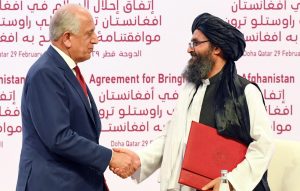
India is closely watching the ongoing jousting for power and a new game of musical chairs going on for control of Afghanistan, but New Delhi’s core concern is the use of the Afghan territory for attacks against India by Pakistani proxies, at the behest of Islamabad. In this backdrop, Jaishankar is expected to press Blinken for intensifying and sustaining pressure on Pakistan on terror financing and terror havens. Given the recent past, India has all-too-real anxieties about Pakistan’s deep state using a friendly Taliban-led regime and militant proxies like the Haqqani network to ramp up terror attacks against India. Secretary Blinken, on his part, is expected to back India’s role as an important player in stabilisation and rejuvenation of Afghanistan.
Checking China
Reining in China’s increasing assertiveness is the subtext of Secretary Blinken’s visit to India. The US’ focus on China was also in focus during the just-concluded visit of Deputy Secretary of State Wendy Sherman to China this week. In this backdrop, the India-US ministerial talks in Delhi will focus on providing more strategic content to the Quad and preparing the agenda for the Quad meeting at the level of foreign ministers as well as the first in-person Quad summit later this year.
US President Joe Biden underlined his commitment to the Indo-Pacific by hosting the first Quad summit virtually in March this year, barely a couple of months after taking charge of the administration. President Biden is looking forward to hosting the first in-person Quad summit in the US later this year, with the overarching objective of promoting the Quad as a fulcrum of stability in the conflicted region. The talks in New Delhi will focus on operationalizing the Quad vaccine initiative which entails distributing 1 billion doses of Covid-19 vaccines in the Indo-Pacific region by the end of 2022. These vaccines will be funded by Japan and the US, manufactured by India and distributed by Australia.
“The visit will be an opportunity to further consolidate bilateral cooperation across a vast agenda. Issues like augmenting trade and investment, and tapping opportunities in healthcare, education, digital domain, innovation and security, will be important elements of the conversation,” said official sources unveiling India’s wish-list for talks with Mr Blinken.
Discussions will cover containment of Covid-19 and Covid-19 recovery efforts. India, on its part, will press for gradual resumption of international travel, while maintaining health protocols, especially easing mobility of students, professionals, business travellers, family reunions and humanitarian cases.
Right-eous talk
Secretary Blinken may raise human rights issues during his talks with Jaishankar, but India is unlikely to blink before a Blinken lecture. Ahead of Blinken’s visit, government sources have showcased India’s achievements in democracy and human rights – a subtle signal to the US not to let these issues which admit of relativistic perspectives to cloud the horizons of the India-US partnership.
“Issues such as human rights and democracy are universal and extend beyond a particular national or cultural perspective. India is proud of its achievements in both domains and is always glad to share experiences,” said sources. “As a long-standing pluralistic society, India is open to engaging those who now recognise the value of diversity.”
Author Profile

- Manish Chand is Founder and Editor-in-Chief of India Writes Network (www.indiawrites.org) and India and World, a pioneering magazine focused on international affairs. He is CEO, Centre for Global India Insights, an India-based think tank focused on global affairs.
Latest entries
 India and the WorldJanuary 13, 2026India, Germany raise the bar for defence, economic ties
India and the WorldJanuary 13, 2026India, Germany raise the bar for defence, economic ties India and the WorldDecember 12, 2025India-Italy bonding: Tajani’s visit raises the bar for business, maritime ties
India and the WorldDecember 12, 2025India-Italy bonding: Tajani’s visit raises the bar for business, maritime ties In ConversationNovember 26, 2025G20 is a Force for global Good
In ConversationNovember 26, 2025G20 is a Force for global Good articlesNovember 26, 2025Rescuing G20 from North-South divide: Ubuntu Moment
articlesNovember 26, 2025Rescuing G20 from North-South divide: Ubuntu Moment

